Digital Earth Special Session Scales Up SIDS Capacity for SDGs
On September 5, 2025, a Special Session on Digital Earth Technologies for Promoting Sustainable Development in Small Island Developing States (SIDS) and South Pacific Island Countries (SPIC) was held at the Headquarters of the International Science and Technology Organizationsin Beijing, with more than 50 delegates fromUN DESA, and governments and institutions of SIDS and SPIC. Participants embracedcloser international collaborations and practical next stepsin Digital Earth to better harness geospatial technologies for monitoring the UN’s Sustainable Development Goals(SDGs).
The session was co-organized by the International Society for Digital Earth (ISDE), United Nations Department of Economic and Social Affairs (UN DESA), International Research Center of Bid Data for Sustainable Development Goals (CBAS), and many other institutions, with the support of the Pacific Academy of Sciences and the Beijing International Science and Technology Exchange Center.
Opening remarks were delivered by Mr. Sai Navoti, Chief of SIDS Unit, Division for Sustainable Development Goals of UN DESA, Mr. Wei Liu, IATT Coordinator, Sustainable Development Officer of UN DESA, Ms. Azeema Adam, Senior Inter-Regional Adviser, Division for Public Institutions and Digital Governmentof UN DESA, and Prof. Changlin Wang, Secretary-General of ISDE.The session was moderated by Dr. Zhen Liu, Executive Director of ISDE.
Mr. Sai Navoti emphasized thatSIDS countries are emerging as pioneers in renewable energy, piloting innovative solutions in solar, wind and tidal power that can serve as a model for the wider world. Geospatial and Digital Earth technologies are fostering the SIDS’capacity building efforts and amplifying their collective voice on the global stage.
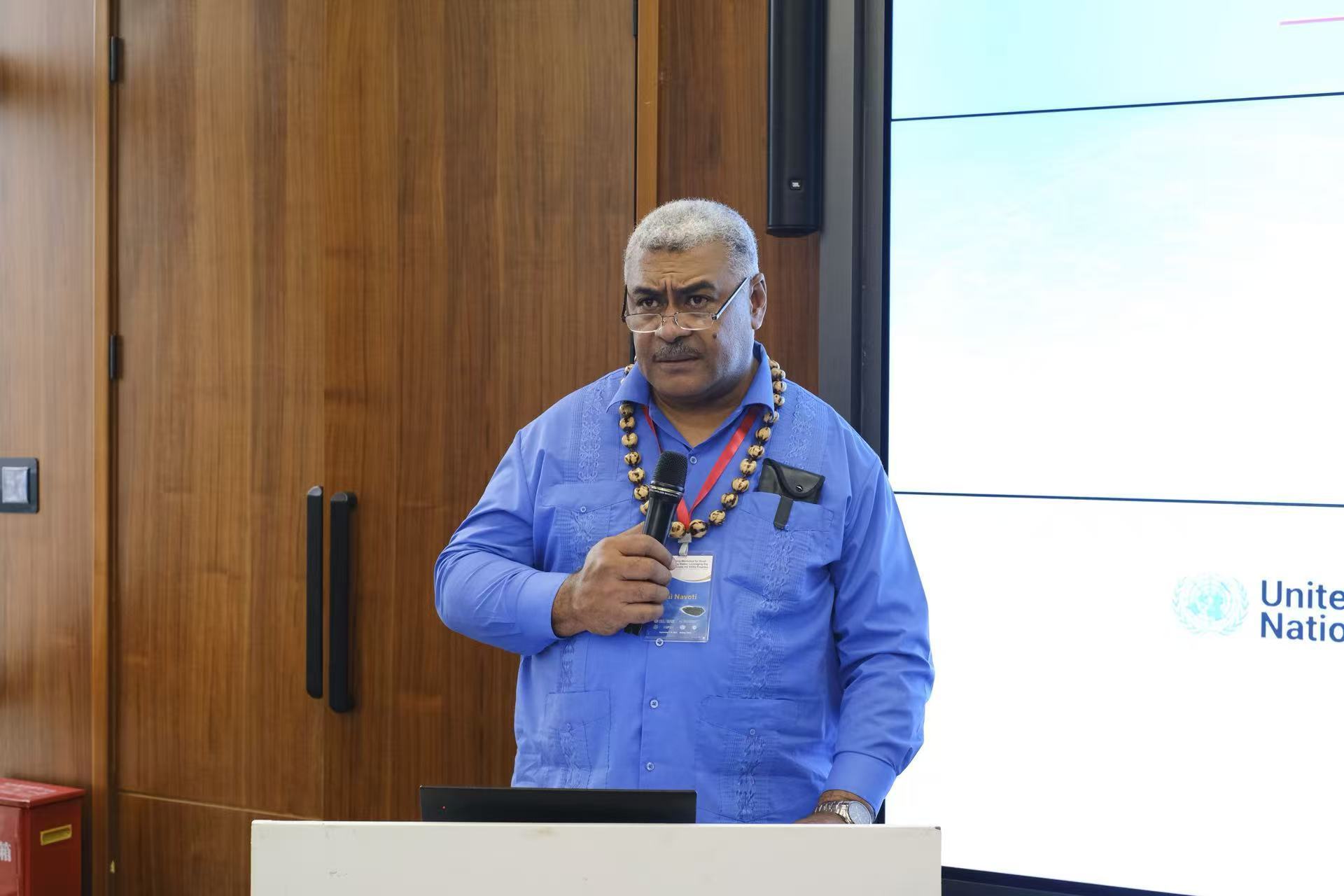
Prof. Changlin Wang highlighted that Digital Earth technologies are essential within the UN frameworks: SDGs, Climate Change, and Disaster Risk Reduction, and also play an important role in the development of digital economies. He believes that Digital Earth technologies could provide solutions in addressing SIDS challenges.
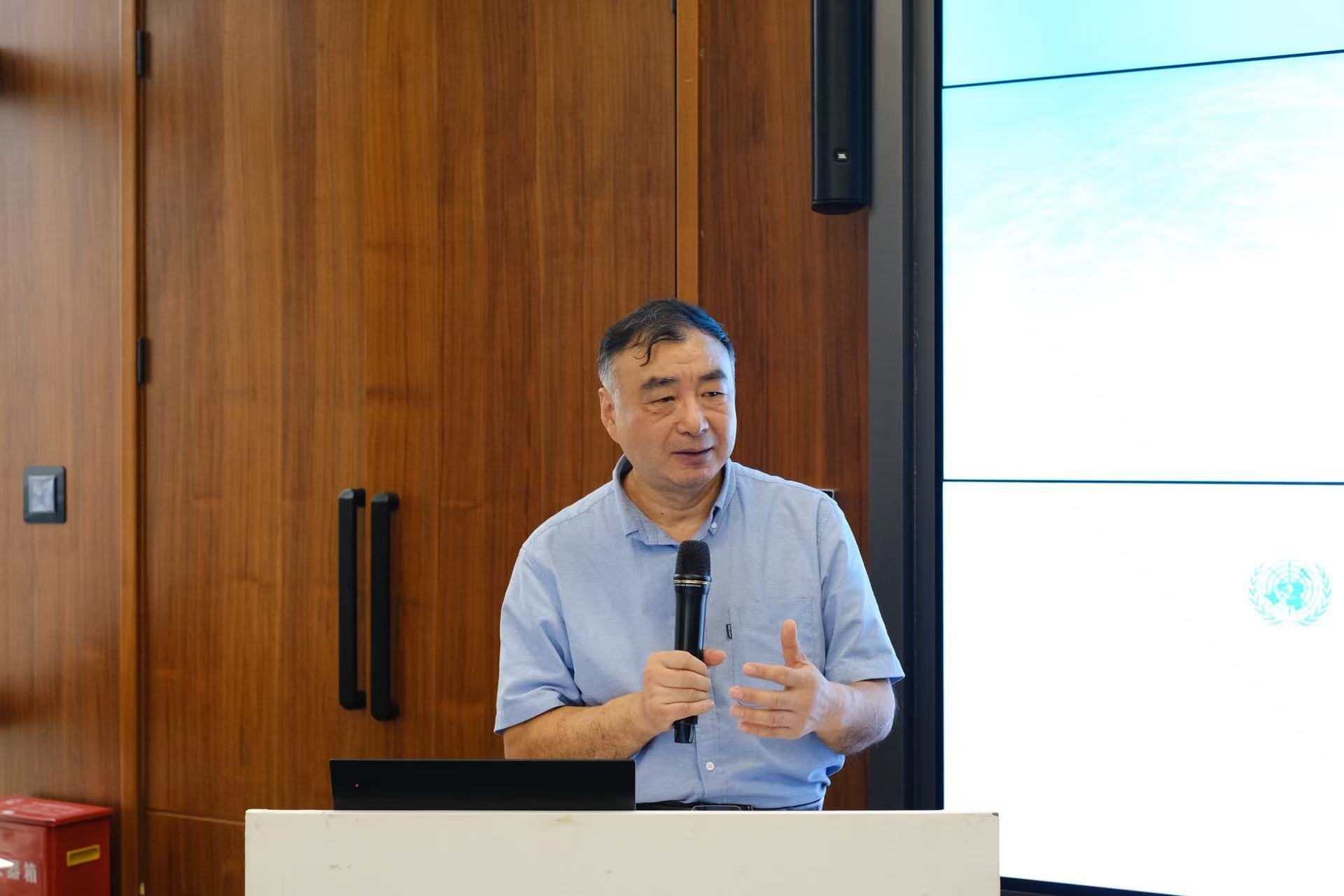
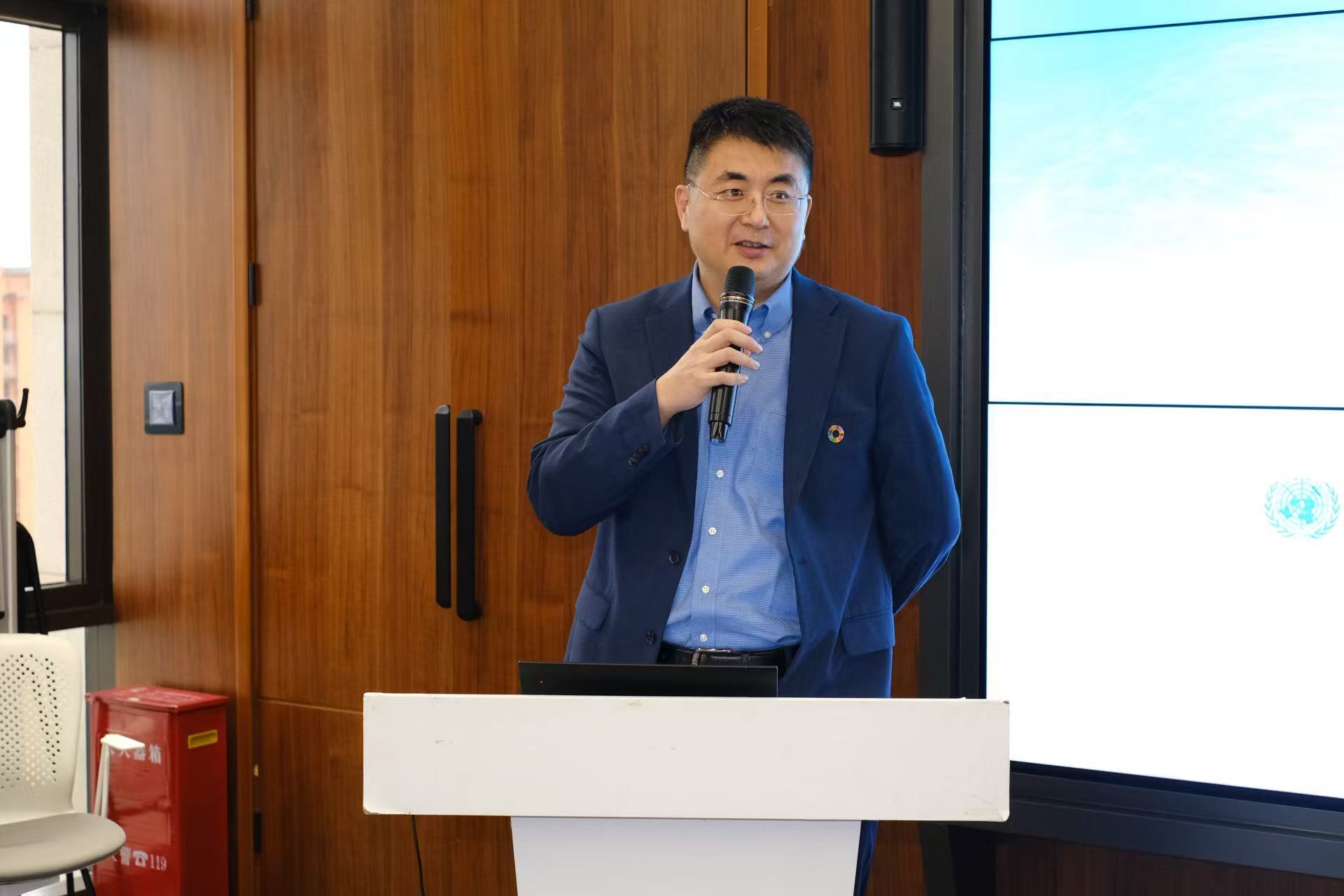
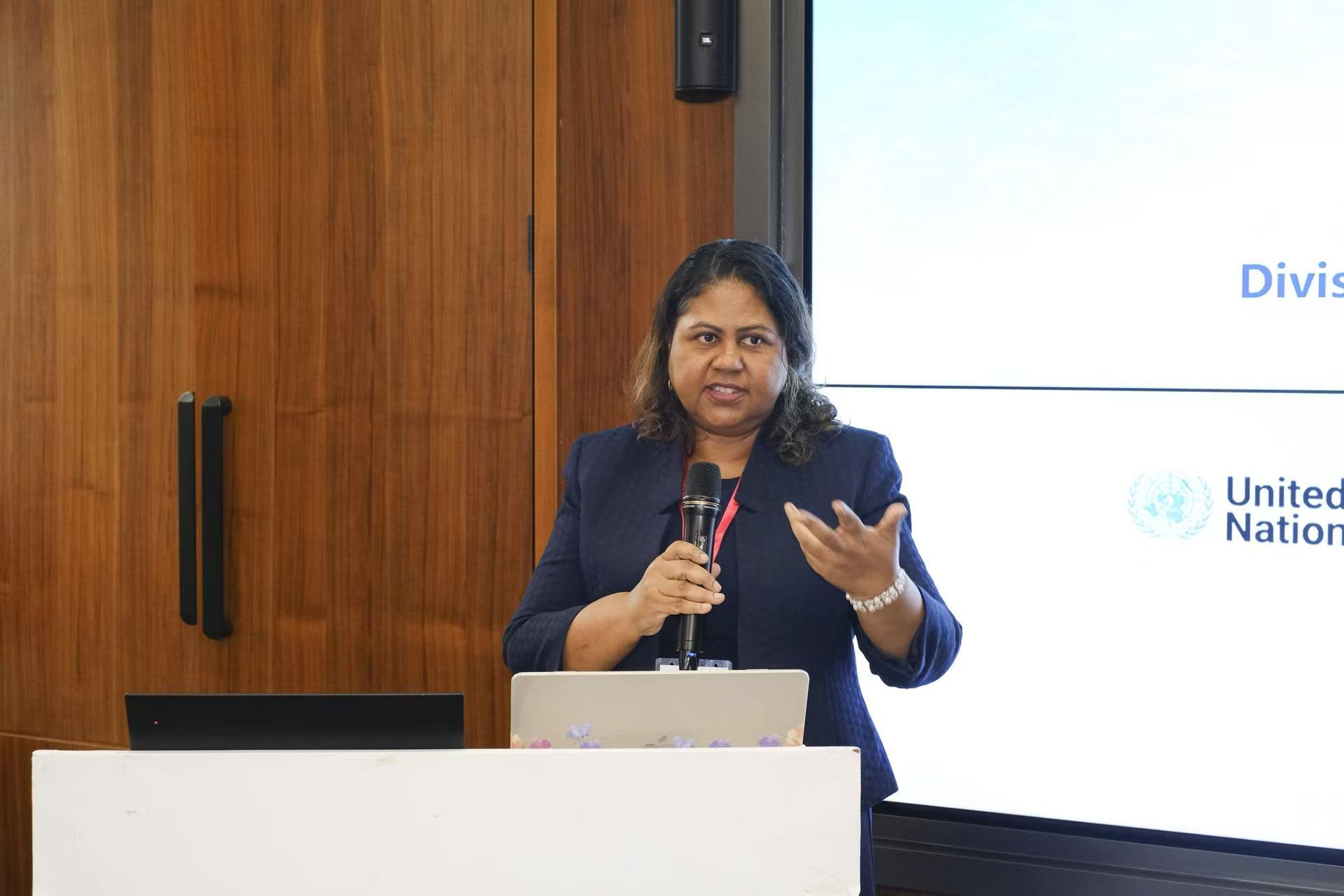
The session featured six keynote presentations by leading field experts, including Mr. Felix Xavier Estico, Member of UN SG’s 10 High-level Representatives to Promote Science, Technology and Innovation for the SDGsand Executive Chairman of Seychelles Centre for Innovation and Sustainable Development, Prof. Gensuo Jia, Deputy Director General of the International Research Center of Big Data for Sustainable Development Goals (CBAS), Dr. Sharon Torao Pingi, Lecturer in Mathematics, Statistics & Computer Science of the University of Papua New Guinea, Prof. Huaguo Zhang, Deputy Director of State Key Laboratory of Satellite Ocean Environment Dynamics, Second Institute of Oceanography, Ministry of Nature Recourse, China, Mrs. Chandranee Rughoobur, Senior Statistician of the Statistics Mauritius, and Prof. Saini Yang, Executive Director of the Integrated Research on Disaster Riskof the International Science Council. Their presentations covered topics ranging from STI governance and technology assessment to climate change, marine monitoring, AI and data, and disaster risk reduction.
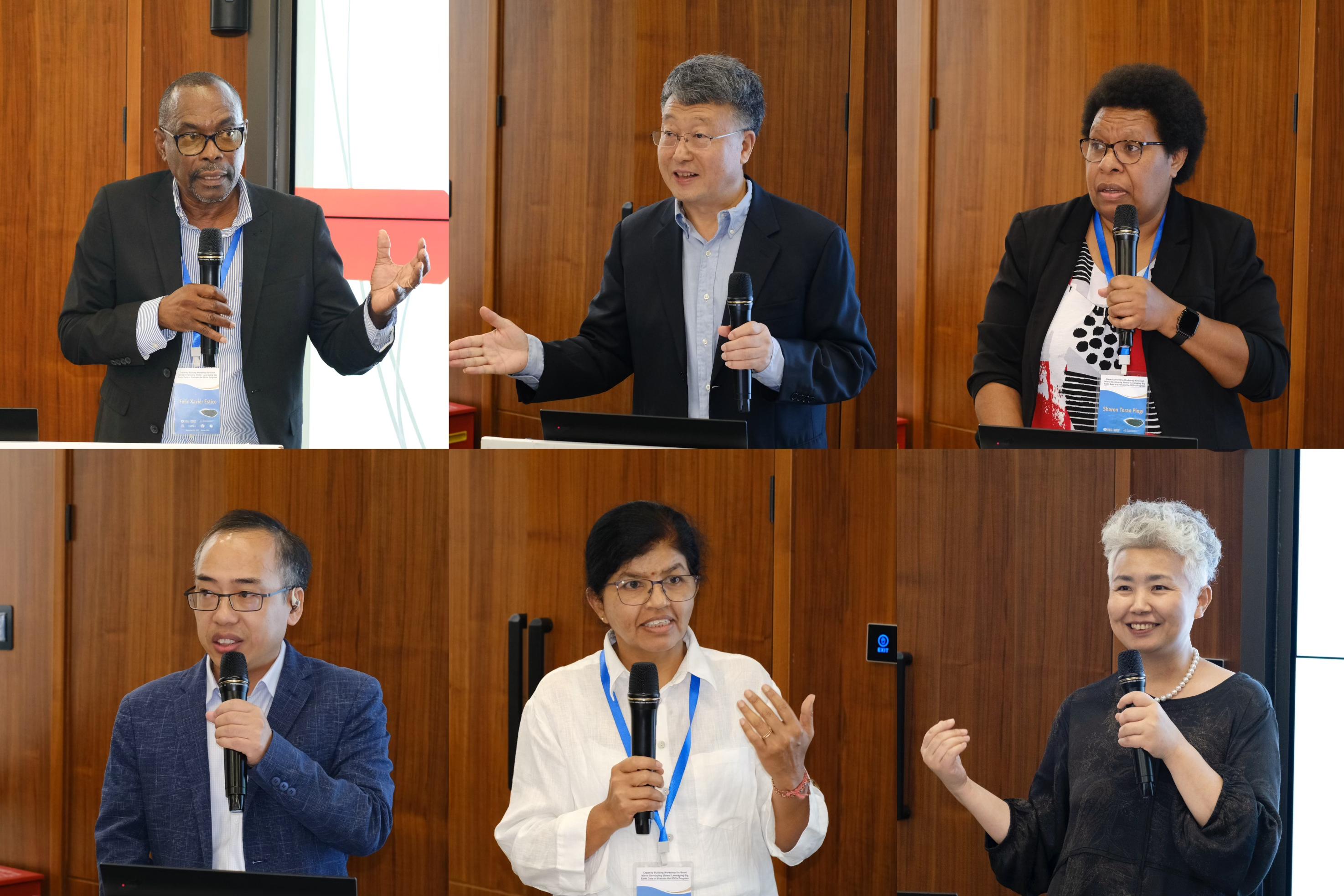
The following panel discussion delved deeper into the most targeted and practical best practices for addressing challenges unique to island countries, beyond universal norms. It stressed the need for stronger stewardship of AI and digital toolkits to bridge data and capacity gaps across SIDS and SPIC, while also reaffirming the importance of open data and international cooperation.
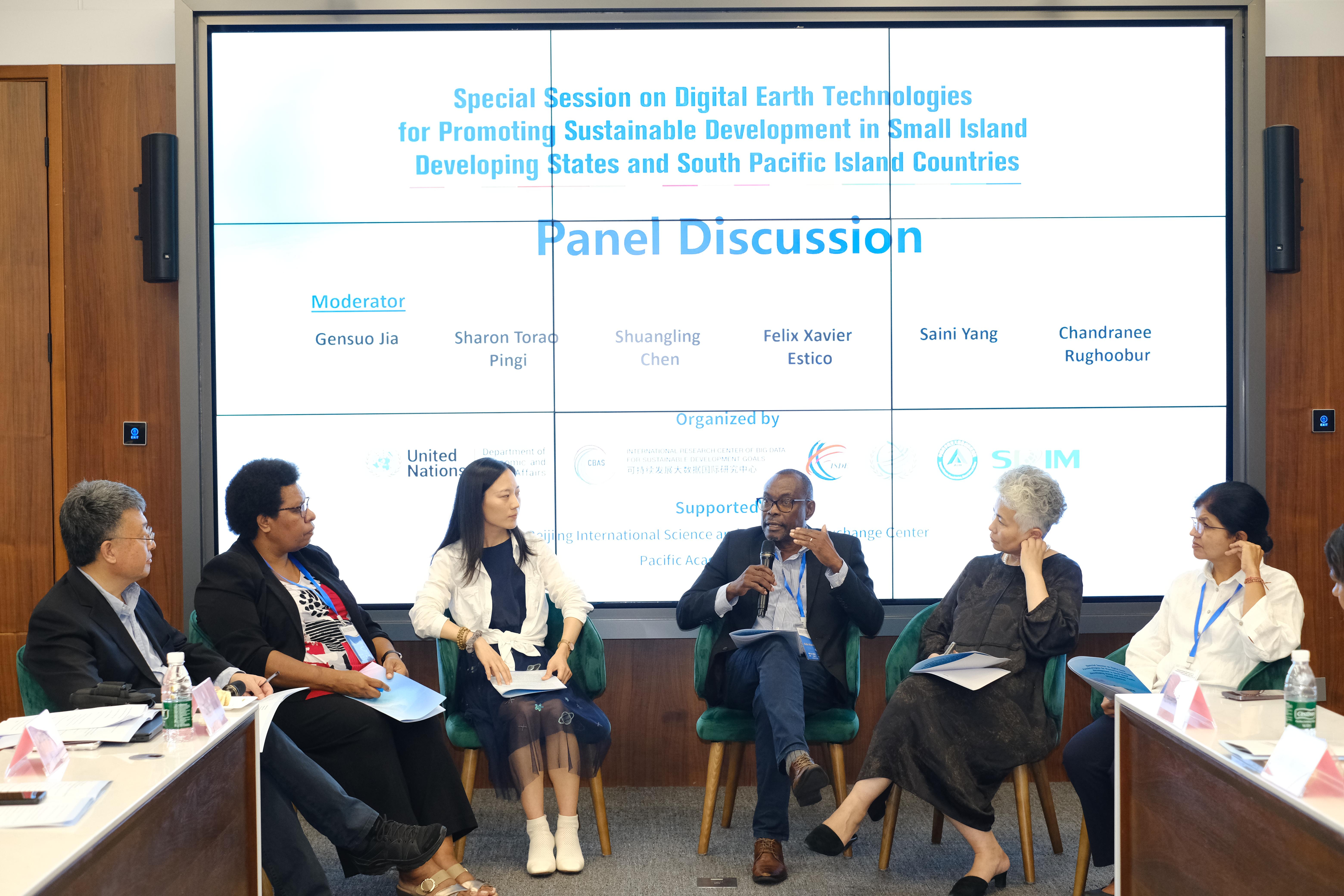
The session formed part of the Capacity Building Workshop for SIDS: Leveraging Big Earth Data to Evaluate the SDGs Progress on September 1 to 8. More than 50 government and institution representatives from 13 countries participated, including Guinea-Bissau, Mauritius, the Dominican Republic, Jamaica, Papua New Guinea, the Maldives, Cape Verde, Seychelles, Fiji, Samoa, São Tomé and Príncipe, Malaysia, and Nepal. The UN delegates, specialists, and representatives from other international organizations also engaged in dynamic exchanges.
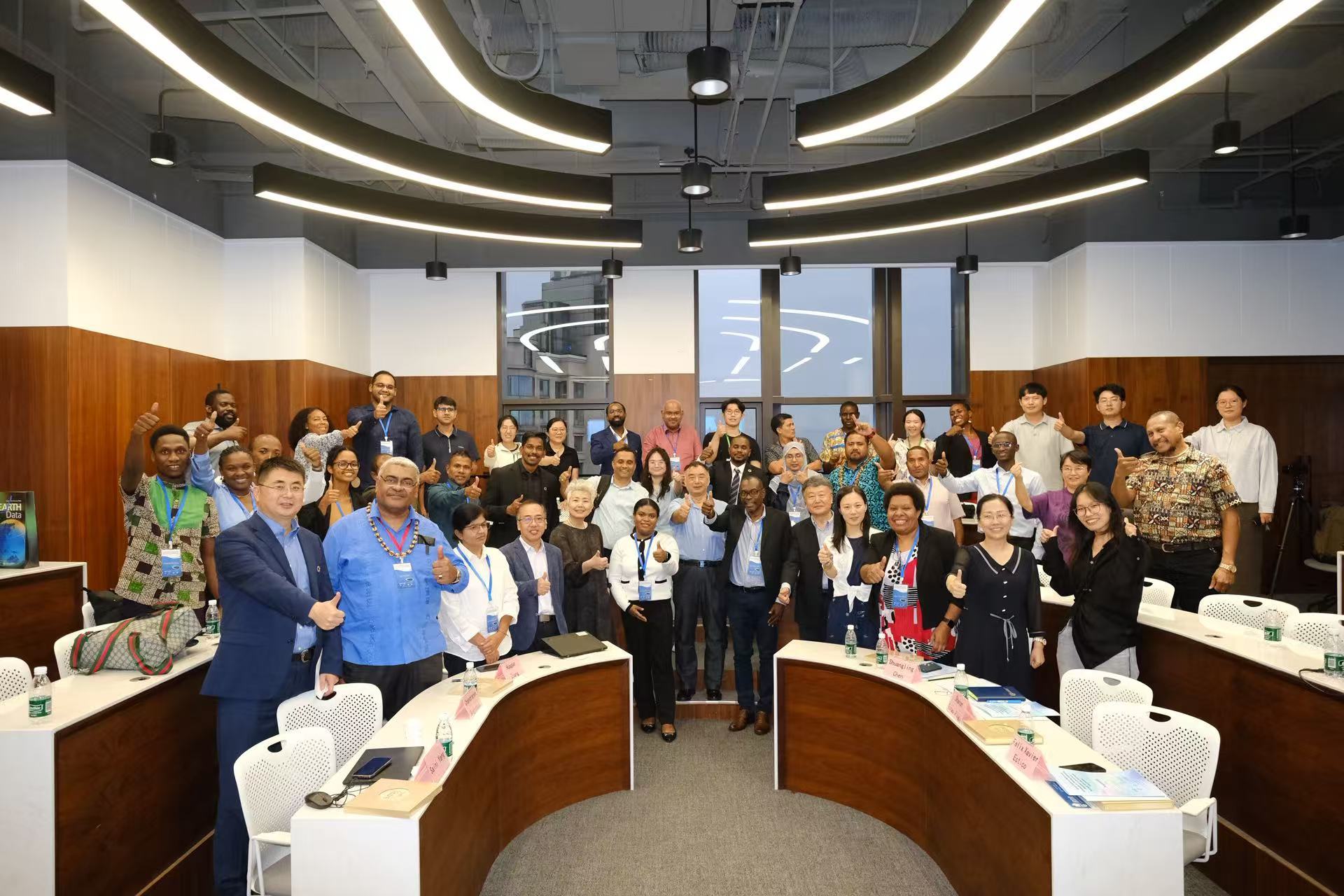
Building on the Antigua and Barbuda Agenda for SIDS (ABAS) adopted at the Fourth International Conference on SIDS in 2024, the workshop placed a strong emphasis on the unique vulnerabilities of island nations, such as geographic isolation, small economies, and high exposure to natural hazards.In the same year, the first Workshopon Capacity Building on Utilizing Big Earth Data for SDGs in SIDS was successfully held in Beijing, whose outputs had been featured on the UN DESA website and offered constructive examples for SIDS.







